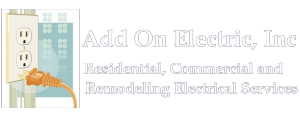The EV Revolution is Here for Construction and New Homes

Have you ever wondered how the EV revolution influences the construction industry? With a growing number of businesses integrating electric vehicles into their operations, construction industry businesses need to consider EV value when developing new homes. Luckily, we’ve outlined some of the key things you need to know about the electric vehicle revolution and its influence on construction projects as follows.
Things to Consider Regarding EV for Construction Projects
#1 Prepare
One of the most important things to keep in mind when getting ready for electric vehicles is to prepare. Indeed, it’s important to take steps now to prepare for the further rollout of electric vehicles; with the country having passed a threshold point now, there seems to be no turning back.
#2 EV Adds Value
Did you know that integrating electric vehicles with new homes and construction projects can add significant value? Since electric vehicles can offer a significant energy-saving opportunity for businesses and homeowners alike, it’s perhaps no surprise that charging point integration is very quickly becoming a sought-after feature.
#3 Incentives and Building Codes
A further point of interest regarding the EV revolution is that building codes increasingly require electric vehicles to be catered for with projects. In accordance with this, when planning your own new homes and constructions, make sure to allow some time to plan how to add charging points to the new property.
Understanding EV Building Codes
With EV building codes playing an ever-more crucial role, it’s important to understand the different EV building codes at play and how they relate to a project. There are three main types of EV-ready building codes that may apply to construction projects:
- EV Capable: The most basic form of EV building code is EV capable, which occurs when the construction has panels and systems that could cater to electric vehicles’ needs. Notably, these make it easy for an EV charging space to be added to the property.
- EVSE-Ready Outlet: A building site or construction project with an EVSE-Ready Outlet will have, as the name suggests, at least one outlet that’s capable of supporting an electric vehicle charging point. This should be fully installed and ready to go so that the individual could theoretically plug an electric vehicle in as soon as the project is finished.
- EVSE Installed: The most in-depth form of EV building code is the EVSE installed, which occurs when the construction is finished with Level 2 chargers with suitable capacity on the project. The property will require no specific number of charging points; this largely depends on the project’s size and the number of people that the building will cater to.
When planning a construction project, it’s crucial to remember these definitions to help. However, every local area may have its own requirements regarding EV readiness. As such, ensuring the business has taken steps to succeed with electric vehicles is hugely important before undertaking new constructions.
And, since EV sites often add value to the construction, there is little reason not to consider adding electric vehicle charging sites to your properties.
#4 Make Sure You’re Ready Before It’s Necessary
Evs are becoming all the rage. As such, it’s vital to prepare your business in advance so that you’ve made the necessary changes before it becomes a necessity.
Final Thoughts
Knowing where to begin can often be incredibly helpful if you’ve been looking for new EV construction projects. Luckily, today’s guide has outlined some key EV opportunities you should know to help. After all, construction projects integrating electric vehicles offer a brand new USP, making them even more desirable for many buyers.
